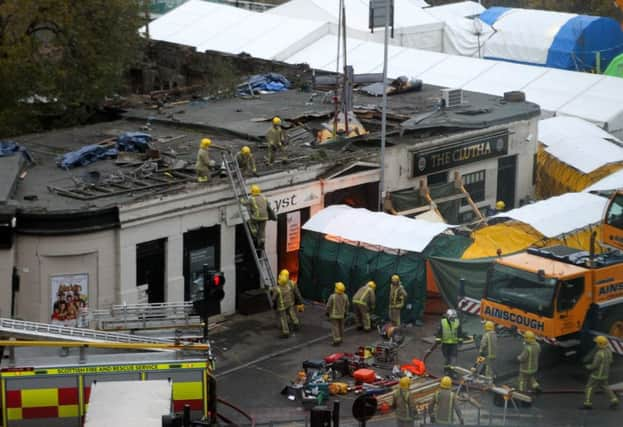Clutha Inquiry: Fuel probe on helicopter should have ‘gone in bin’


It stated the main fuel probe should go in the “bin” if it could be changed.
Asked what steps he had taken on reading the report by one of his colleagues, Ian Taylor, an aircraft maintenance engineer at the helicopter’s Glasgow base, said: “None that I can remember.”
Advertisement
Hide AdAdvertisement
Hide AdThe inquiry heard of a series of reported problems with fuel readings on the G-SPAO twin engine Eurocopter aircraft in the months leading up to the crash.
An entry in the pilot hand-over diary dated 21 May 2013 noted there was fuel degrade and “inaccurate fuel information”. A technical log sector for that day and surrounding dates did not refer to any such defects.
Questioned by Gordon Lamont, advocate for the Crown, Mr Taylor said he could not remember being aware of the issue.
Five days later, the technical record noted erratic fuel content readings with the fault being traced to the rear fuel probe, which was replaced.
Eight days later, Mr Taylor recorded in the engineers’ diary a new sensor was arriving as there was the “same fuel snag as before”.
There was no corresponding entry in the technical record. Mr Taylor said he could not say why this was the case. The 58-year-old said he would expect the entries to correspond regarding a permanent defect.
On 10 October, Mr Taylor replaced three of the four fuel supply sensors after a failure in the fuel supply tank.
The following day, a fuel supply tank was found to be indicating it had 11kg of fuel when it was actually empty, but after being cleaned and refilled the problem was solved.
Advertisement
Hide AdAdvertisement
Hide AdMr Taylor, an aircraft maintenance engineer for 36 years, also said he was not aware before January 2013 of the possibility of water entering the aircraft’s fuel system after a compression wash of the engines, but would have been after its manufacturer issued an information notice that month.
The inquiry before Sheriff Principal Craig Turnbull, which is being held at a temporary court at Glasgow’s Hampden Park, continues.
